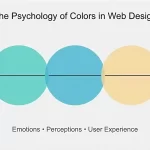The TL;DR for Chronically Rushed Readers (Who Still Want to Feel Things)
-
Emotional intelligence isn’t just for Vulcans and therapists anymore
-
Self-awareness: Like looking in a mirror, but for your feelings
-
Active listening: It’s not just nodding while planning your grocery list
-
Perspective-taking: Walking a mile in someone else’s shoes (metaphorically, please)
-
Empathy: The superpower that turns you into a relationship Jedi
-
Social skills: Because “introvert” isn’t a get-out-of-socializing-free card
Alright, fellow emotions-havers! Buckle up, because we’re about to embark on a wild ride through the treacherous terrain of feelings, relationships, and that elusive beast known as emotional intelligence. If you’ve ever wondered why your coworker burst into tears when you said their PowerPoint was “fine,” or why your partner gives you the cold shoulder after you’ve “fixed” their problem, then this post is for you. Welcome to “Emotional Intelligence 101: Where IQ Meets ‘I Feel.'”
The EQ Revolution: More Than Just Feeling Feelings
Let’s face it: in a world where we can have entire relationships through emojis, actually understanding and managing our emotions seems like a quaint relic of the past. But here’s the kicker – emotional intelligence (EQ) is becoming increasingly crucial in our hyper-connected, yet somehow disconnected, world.
Why EQ Matters (Besides Impressing Your Therapist)
-
It’s the secret sauce in successful relationships (romantic and platonic)
-
It can make or break your career (sorry, robot overlords, you can’t replicate this… yet)
-
It’s the difference between being a “people person” and that person everyone avoids at parties
Real-World EQ Applications
-
Conflict Resolution: Imagine defusing a tense situation at work without resorting to a stapler-throwing contest.
-
Leadership: Being the boss everyone wants to work for, not the one they plot against in the break room.
-
Customer Service: Turning angry customers into brand ambassadors (without selling your soul).
-
Personal Relationships: Understanding why your partner is upset about the dishes, even when they say “It’s fine.”
Self-Awareness: The Art of Not Lying to Yourself
Self-awareness is like having a brutally honest best friend living in your head. It’s the foundation of emotional intelligence, and it’s about as comfortable as wearing wet socks. But fear not! Developing self-awareness doesn’t mean you have to spend years on a mountaintop contemplating your navel.
Tips for Becoming Self-Aware (Without Going Full Hermit)
-
Keep an emotion journal (no, your angsty teenage diary doesn’t count)
-
Practice mindfulness (it’s like meditation, but you can do it while eating pizza)
-
Ask for feedback (brace yourself, and maybe have some ice cream ready)
-
Take personality assessments (Myers-Briggs, Enneagram, or “Which Cheese Are You?”)
Self-Awareness Do’s and Don’ts
Do:
-
Regularly check in with yourself (like you check your phone, but less obsessively)
-
Embrace your quirks (they’re what make you interesting at dinner parties)
-
Acknowledge your emotions without judgment (yes, even the urge to punch that loud chewer)
Don’t:
-
Confuse self-awareness with self-criticism (you’re not auditioning for the role of your own worst enemy)
-
Ignore physical sensations (turns out, that knot in your stomach isn’t just from too much coffee)
-
Assume you know everything about yourself (spoiler alert: you’re more complex than a Christopher Nolan movie)
Remember, self-awareness isn’t about judging yourself. It’s about understanding why you do what you do, feel what you feel, and occasionally want to throw your phone across the room when someone leaves you on “read.”
Active Listening: It’s Not Just Hearing, It’s an Extreme Sport
We’ve all been there – nodding along in a conversation while mentally composing our grocery list or planning our escape route. But active listening is the key to unlocking the treasure trove of emotional intelligence. It’s like regular listening, but with more… well, listening.
The Active Listener’s Toolkit (No Actual Tools Required)
-
Make eye contact (but not in a creepy way)
-
Use non-verbal cues (nod, smile, resist the urge to check your phone)
-
Paraphrase and reflect (“So what I’m hearing is…”)
-
Ask open-ended questions (not “Does this conversation make you want to gouge your eyes out too?”)
Active Listening Scenarios
-
The Venting Friend: When your bestie needs to rant about their terrible date, resist the urge to immediately offer solutions. Sometimes people just need to be heard.
-
The Workplace Disagreement: In a heated meeting, try repeating your colleague’s point back to them before responding. It shows you’re listening and might just diffuse the tension.
-
The Relationship Talk: When your partner says, “We need to talk,” put down the video game controller and give them your full attention. Your high score can wait.
Pro tip: Active listening works wonders in relationships. Your partner will be amazed at how attentive you’ve become, and you might even remember their birthday this year!
Perspective-Taking: Walk a Mile in Someone Else’s Crocs
Perspective-taking is the cognitive equivalent of trying on someone else’s glasses – it might give you a headache at first, but it’ll change how you see the world. It’s about understanding others’ thoughts, feelings, and motivations, even if they’re as alien to you as the concept of enjoying kale smoothies.
How to Master the Art of Perspective-Taking (Without Actually Becoming Someone Else)
-
Practice empathetic imagination (What would Beyoncé do?)
-
Seek diverse experiences and viewpoints (Netflix documentaries count, right?)
-
Play devil’s advocate (but maybe not during heated political discussions at Thanksgiving)
-
Use the “step back” technique (imagine viewing the situation from a balcony)
Perspective-Taking Challenges
-
The Political Divide: Try to understand why your uncle posts those controversial memes without unfriending him (family reunions are awkward enough).
-
The Generation Gap: Attempt to see why your boss insists on unnecessary meetings without rolling your eyes (visibly).
-
The Cultural Difference: When traveling, try to understand local customs instead of loudly proclaiming, “But that’s not how we do it back home!”
Remember, the goal isn’t to agree with everyone – it’s to understand where they’re coming from. Even if where they’re coming from is a place that thinks pineapple belongs on pizza.
Empathy: The Superpower That Doesn’t Require Spandex
Empathy is like emotional intelligence’s cooler, more popular sibling. It’s the ability to understand and share the feelings of another, without necessarily wanting to trade places with them (especially if they’re having a really bad day).
Cultivating Empathy: A Garden of Emotional Connection
-
Practice active compassion (it’s like regular compassion, but with jazz hands)
-
Volunteer or engage in community service (helping others: it’s not just for college applications anymore)
-
Read fiction (turns out, all those English classes were useful for something)
-
Challenge your biases (yes, even that one about people who talk during movies)
Empathy in Action
-
The Crying Coworker: Instead of awkwardly offering a tissue and fleeing, try sitting with them and offering support.
-
The Struggling Friend: When a friend is going through a tough time, resist the urge to one-up their problems with your own.
-
The Customer Service Nightmare: Before unleashing your fury on the poor soul behind the counter, remember they probably didn’t personally lose your package.
Developing empathy doesn’t mean you have to feel everyone’s pain all the time (that would be exhausting and probably require therapy). It’s about creating connections and understanding that makes the world a little less “us vs. them” and a little more “we’re all in this weird human experience together.”
Social Skills: Because “Introvert” Isn’t a Personality Type, It’s a Challenge
Ah, social skills – the final frontier of emotional intelligence. For some, socializing comes as naturally as breathing. For others, it’s more like trying to breathe underwater while solving a Rubik’s cube. But fear not, my socially awkward friends! Social skills can be learned, even if you’d rather be at home with your cat.
Leveling Up Your Social Game (No Cheat Codes Required)
-
Practice small talk (start with plants, work your way up to humans)
-
Learn to read body language (it’s like a secret code, but with more shoulder shrugs)
-
Develop your sense of humor (self-deprecation is fine, just don’t overdo it)
-
Master the art of the graceful exit (no more awkwardly lingering by the door!)
Social Skills Scenarios
-
The Networking Event: Navigate the room without looking like you’re searching for the emergency exit.
-
The First Date: Keep the conversation flowing without resorting to a PowerPoint presentation of your life story.
-
The Team Building Exercise: Participate without visibly cringing (your coworkers will thank you).
Remember, developing social skills doesn’t mean becoming the life of the party (unless that’s your goal, in which case, go forth and dazzle). It’s about feeling comfortable in social situations and forming meaningful connections. And if all else fails, there’s always the tried-and-true method of finding the nearest dog at the party and becoming its new best friend.
The Grand Finale: Putting It All Together
Congratulations! You’ve made it through Emotional Intelligence Boot Camp. You’re now equipped with the tools to navigate the treacherous waters of human interaction. But like any good superhero origin story, this is just the beginning.
Real-Life EQ Integration
-
The Family Reunion: Use your newfound skills to navigate Aunt Edna’s probing questions and Uncle Bob’s controversial opinions.
-
The Job Interview: Showcase your EQ by reading the room and connecting with your potential employer on a human level.
-
The Relationship Rough Patch: Apply active listening and empathy to understand your partner’s perspective and work through conflicts.
Developing emotional intelligence and empathy is a lifelong journey. It’s about continuous growth, learning from mistakes, and occasionally eating ice cream straight from the container while contemplating the complexities of human emotion. But the rewards are worth it – better relationships, improved communication, and the ability to finally understand why your cat gives you that judgmental look.
The EQ Ripple Effect
As you develop your emotional intelligence, you’ll notice changes not just in yourself, but in your interactions and relationships:
-
Friends and family may start coming to you for advice (congrats, you’re now the group therapist)
-
Colleagues might seek your input on interpersonal matters (office diplomat: unlocked)
-
You’ll become more adept at navigating social situations (goodbye, awkward small talk)
-
Your relationships may deepen and become more fulfilling (who knew understanding feelings could be so powerful?)
So go forth, emotionally intelligent warriors! Spread empathy like confetti, listen like your life depends on it, and remember – in a world where you can be anything, be kind. And maybe a little bit weird, because that’s what makes life interesting.
Now, if you’ll excuse me, I need to go practice my active listening skills with my houseplants. They have a lot to say, you know.
Similar Interesting Reads:
-
“The Introvert’s Guide to Networking: How to Build Relationships Without Hiding in the Bathroom”
-
“Mindfulness for the Chronically Distracted: Finding Inner Peace in a World of Shiny Objects”
-
“Failure: Your New Best Friend – Embracing Setbacks for Personal Growth and Success”









